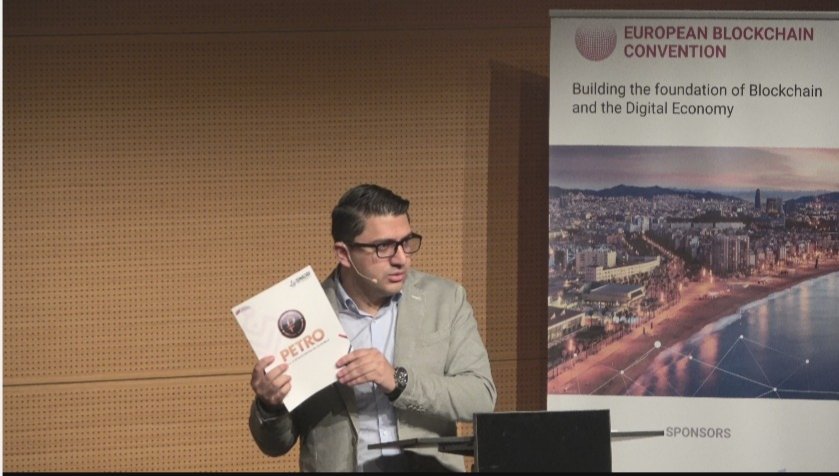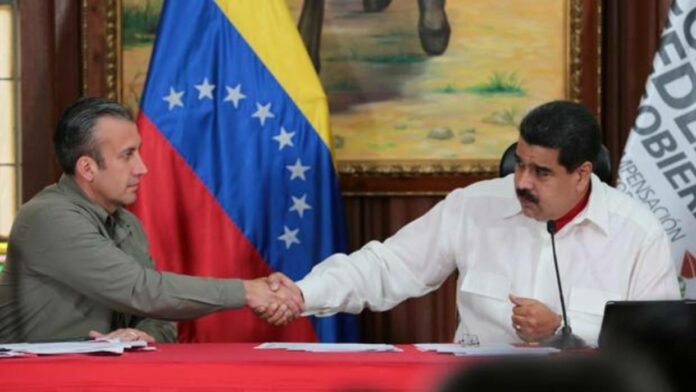 Powerful Tareck El Aissami Out of Power Due to Corruption Investigations at Pdvsa.
Powerful Tareck El Aissami Out of Power Due to Corruption Investigations at Pdvsa.
On the night of Tuesday, March 21, tranquility in the luxurious Country Club neighborhood of Caracas was disrupted by the presence of several Sebin vehicles – accompanied by drones – in front of the Quinta Samán on Avenida El Samán.
The raid on the modern 1,820 m2 mansion, which includes a guest house, guardhouse, meditation spaces, a swimming pool, and a grill, lasted until dawn. The property belongs to Alejandro Arroyo, one of the detained individuals accused of being a frontman and financial operator in the new illicit business dealings of PDVSA.
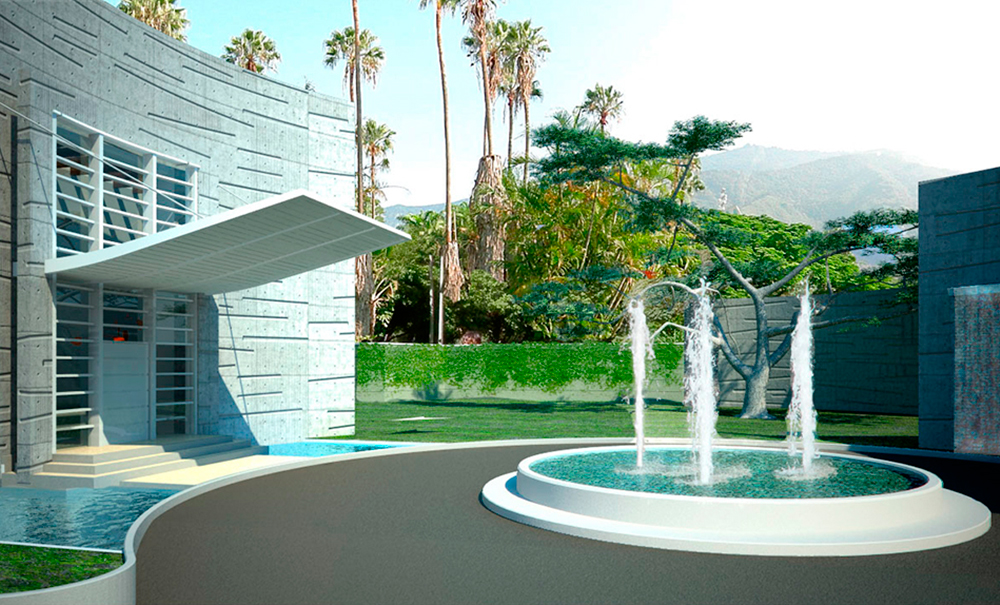 Quinta El Samán in the Country Club of Caracas, owned by Alejandro Arroyo, one of the businessmen involved in the new corruption scheme of Pdvsa that led to Tareck El Aissami’s exit from the Ministry of Oil.
Quinta El Samán in the Country Club of Caracas, owned by Alejandro Arroyo, one of the businessmen involved in the new corruption scheme of Pdvsa that led to Tareck El Aissami’s exit from the Ministry of Oil.
Through statements on their social media, the little-known National Anti-Corruption Police (PNAC) and the “General Prosecutor’s Office of the Republic” announced the dismantling of a corruption network within PDVSA composed of “officials who, taking advantage of their positions and authority, would have executed oil operations parallel to PDVSA.”
This is clearly a new power struggle within the Maduro elite.
The initial estimated damage to the nation’s assets is around $3 billion in accounts receivable, characterized by investigators as “potentially unrecoverable as they are linked to oil tankers that left the country without advance payment, despite customers agreeing to those conditions.”
It followed a weekend of conjecture, rumors, and uncertainty, culminating on Monday with Tareck El Aissami’s resignation from the Ministry of Oil. However, it wasn’t until Saturday, March 25, that Tarek William Saab communicated the official version regarding the “discovered” corruption scheme in PDVSA (the 31st, according to the prosecutor appointed by the National Assembly). This latest case recalled a similar one presented in August 2022, where Rafael Ramírez was blamed for the embezzlement of $4.5 billion through irregular operations with the currency differential. In the current situation, Saab refrained from disclosing the amount of the theft but named the alleged members of the scheme, identifying its “head” as Lieutenant Colonel Antonio Pérez Suárez, Vice President of Commerce and Supply at PDVSA.
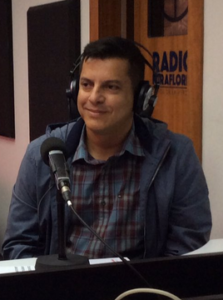 Lieutenant Colonel Antonio Pérez Suárez
Lieutenant Colonel Antonio Pérez Suárez
As is his style, Saab used an agitated tone in the statement, filled with personal opinions, inaccuracies, and misplaced political or philosophical comments to point fingers at those involved, ten officials and eleven businessmen detained in relation to the case:
Lieutenant Colonel Antonio Pérez Suárez, Vice President of Commerce and Supply at PDVSA since February 2020, appointed by Nicolás Maduro.
Hugbel Roa, National Assembly deputy for the PSUV. Former Minister of University Education, Science and Technology and former Deputy Minister of Strategic Affairs of the Republic’s Presidency.
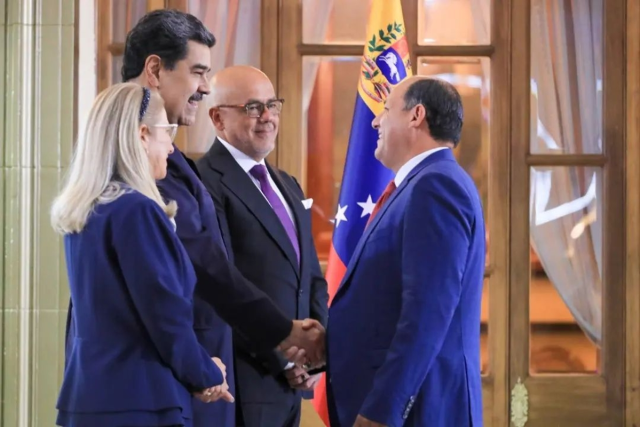 Former Deputy Hugbel Roa (PSUV) with Maduro, Jorge Rodríguez, and Cilia Flores.
Former Deputy Hugbel Roa (PSUV) with Maduro, Jorge Rodríguez, and Cilia Flores.
Joselitt Ramírez Camacho, right-hand man of Tareck El Aissami, director of his office and the National Superintendency of Crypto Assets (Sunacrip). He has a good relationship with Carabobo Governor Rafael Lacava. He is sanctioned by the U.S., which offers a five-million-dollar reward for his capture.
Rajiv Alberto Mosqueda Fregona and Renny Gerardo Barrientos from the Intendency of Digital Mining and Associated Processes.
Five officials from the Vice Presidency of Commerce and Supplies at PDVSA: José Agustín Ramos, Yamil Alejandro Martínez, Eduardo José Borgones, Henrys Chapellín, and Jesús Enrique Salazar.
José Mascimino Márquez García, Fourth Judge of Control with jurisdiction over crimes associated with terrorism of the Judicial Criminal Circuit of the Metropolitan Area of Caracas, who was detained for favoring the impunity of the criminal gang Tren del Llano. He would also be involved in the corruption schemes related to PDVSA linked to the currency differential.
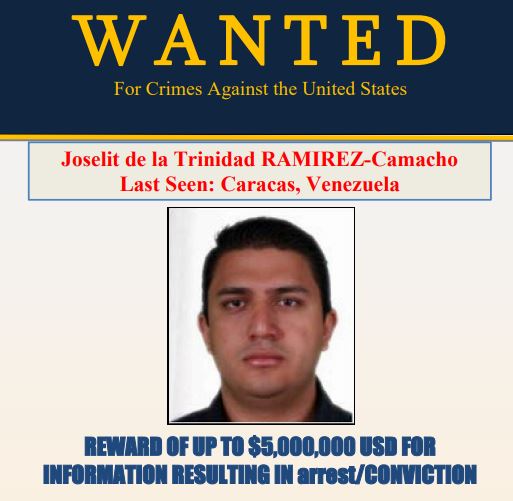 Former National Superintendent of Crypto Assets wanted by U.S. authorities
Former National Superintendent of Crypto Assets wanted by U.S. authorities
Regarding the businessmen involved, accused of being financial operators of the scheme, the prosecutor confirmed the detention of:
Manuel Meneses Guevara, Roger Ramírez, the brothers Rafael and Roger Perdomo Rodríguez, Cristofer Barrios, Johana Torres, Alejandro Arroyo, Bernardo Arosio, Fernando Bermúdez, Leonardo Torres, and Daniel Prieto.
There are eleven more sought after: the brothers Juan Manuel and Manuel Ramón Afonso López, William Rivas, Ximena Cagide Parada, Eduardo Noriega, José Luis Ferrandiz, Olvany Gaspari, Railin Elizabeth Yépez, Rodolfo Moleiro, Alejandro Londoño, and Yuravic Ravelo.
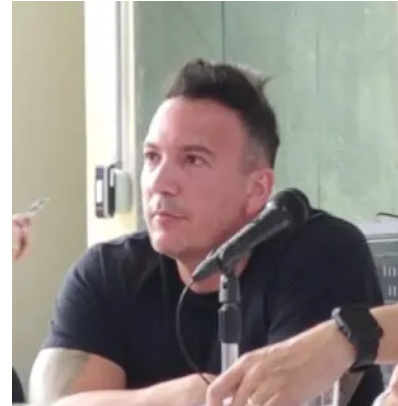 Rafael Perdomo Rodríguez and his brother Roger are businessmen close to Pérez Suárez.
Rafael Perdomo Rodríguez and his brother Roger are businessmen close to Pérez Suárez.
All are accused of the crimes of appropriation or diversion of public assets and money laundering.
Additionally, Saab announced the seizure of airplanes, yachts, motorcycles, houses, vehicles, and cash belonging to the criminal network. The question we ask is what will happen to these assets? Who will manage them? Who will administer them? So far, the experience has been that seized assets end up in the hands of high-ranking regime officials. Indeed, according to sources from Cuentas Claras Digital, it has reached the extent of guaranteeing the return of some of these confiscated assets to their owners in exchange for bribes.
It is noteworthy that Saab did not mention Tareck El Aissami (TEA) throughout his intervention, despite having resigned from the ministry of oil to “collaborate with the investigation” on March 20, following a weekend purge against his surroundings. Nor was he named in the official National Assembly proceedings during the process of lifting the parliamentary immunity of PSUV deputy Hugbel Roa.
The Confessions of Walid Mackled
“In a conversation we had in my apartment, he told me they needed to raise a certain amount of money because there was a banker who had helped them with over a thousand million bolívares, as they needed to buy an oil tanker to affiliate it with some of their friends.”
This is how Walid Makled, convicted for drug trafficking, describes the request made to him by Haisam El Aissami, brother of Tareck El Aissami (TEA), as he declared to NTN24 in 2010 during his detention in the maximum-security prison in Cónvita in Boyacá, Colombia. In the interview, he details the close relationship he had with TEA’s brother when the latter was serving as Minister of Interior under Hugo Chávez.
Fourteen years ago, Tareck El Aissami was already eyeing the “oil business.”
The Arrests
The arrest of Daniel Ricardo Prieto was made after Venezuela alerted the authorities in the Dominican Republic, who proceeded to return or “inadmit” the financial operator traveling from Caracas to the Caribbean nation.
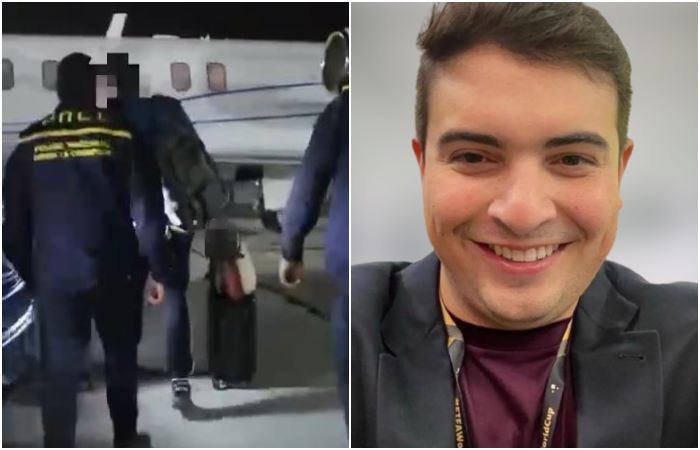 Daniel R. Prieto, alleged frontman for deputy (PSUV) Hugbel Roa, was returned from the Dominican Republic at Venezuela’s request just as he was about to enter the Caribbean country.
Daniel R. Prieto, alleged frontman for deputy (PSUV) Hugbel Roa, was returned from the Dominican Republic at Venezuela’s request just as he was about to enter the Caribbean country.
Bernardo Arosio Hobaica, a construction entrepreneur and owner of Prodata Energy, a company favored by PDVSA to export Venezuelan gas to Colombia, voluntarily appeared to testify and was detained.
With better luck would have run Pedro Maldonado – a trusted figure of Tareck El Aissami and partner of Alejandro Arroyo – president of the Venezuelan Corporation of Guyana (CVG), who, after collaborating with investigators, would have been released.
Another relevant collaborator would be GNB Major Manuel Parra Ramírez, who was recently part of Pérez Suárez’s team, who dismissed him from the Vice Presidency of Commerce and Supply.
The businessman Daniel David Uzcátegui was presented to testify under the custody of the General Directorate of Military Counterintelligence (DGCIM).
Since the National Anti-Corruption Police – that great unknown – linked to the Sebin, announced the investigation later corroborated by the Public Ministry, many names of possible involved parties have circulated in the media and social networks, some of which were not confirmed by Tarek Saab.
They are: Army Colonel Oscar Dávila Rondón, who has held significant positions such as the presidency of Bariven and PDVSA Industrial. A member of trusted Antonio Pérez Suárez’s team, he accompanied him at the Socialist Cement Corporation and in the Automotive Sector; the general manager of PDV Marina, Colonel Samuel Testamarck; Lieutenant Colonel José Agustín Ramos Chirinos, general manager of the Integral Security Directorate of the Orinoco Oil Belt and former Governor of Sucre state, Edwin Rojas.
On Sunday morning, reports circulated on social media that the National Anti-Corruption Police were raiding several apartments in a building in the Los Chorros neighborhood of Caracas, supposedly owned by Jesús Méndez, known as El Gordo, a personal friend of Tareck El Aissami.
The Accusations and the Figures
Both the officials and the businessmen under investigation have been charged by the MP with appropriation or diversion of public assets and money laundering. In his speech, Saab did not confirm the initial figure of $3 billion, nor did he deny or confirm the amounts of the looting that have circulated in the media and social networks.
The international news agency Reuters reports that PDVSA may have accumulated $21.2 billion in accounts receivable, equivalent to 84% of the total billed shipment value – three times this year’s fiscal budget – after resorting to dozens of intermediaries since 2020 to export oil under sanctions.
Thus, PDVSA has relinquished its exclusivity in oil sales, handing this authority over to third parties, most of whom are front companies owned by businessmen aligned with Chavismo lacking any expertise in the oil industry who have capitalized on the “improvisation,” disorder, and secrecy provided by the Anti-Blockade Law enacted on October 12, 2020, especially through articles 36, 37, and 38.
According to figures provided by the ArmandoInfo portal, the financial shortfall at PDVSA would exceed $8 billion, resulting from debts accumulated by these companies over nearly four years.
Modus Operandi
The sale of crude oil occurs through a method known as “compensation,” which is simply a barter of oil for food or for the construction of public works, among other state needs. Transactions include discounts of up to 40%, citing the risks arising from sanctions.
In some cases, the operation is carried out with advance payments in which the buyer can inspect the product, which determines pricing and commissions.
Amidst the lack of controls and opacity, and with the aim of evading sanctions, experts indicate that it is common practice for ships loaded with Venezuelan oil – almost always chartered tankers since those of PDV Marina are inoperative or do not dare to sail for fear of embargoes due to the oil company’s debts – and whose tracking systems or AIS have been disconnected, to transfer (lightering) the cargo at sea to international traders who then sell it to oil companies in countries like China or India, among others.
The most complicated part of these transactions is collecting payments without using the international banking system and without the guarantee of insurance and reinsurance companies. How does PDVSA get paid, and how do operators who run risks in both the purchase and sale of oil and financial transactions receive their payments?
The detention of Joselitt Ramírez Camacho, director of the National Superintendency of Crypto Assets (Sunacrip), would confirm the use of cryptocurrencies in the financial transactions of PDVSA.
Corruption Clans: Heads and Members
The “red-red” destruction of PDVSA seized by the kleptocracy and kakistocracy of Miraflores is once again evident with the sale of oil through mechanisms of absolute opacity, with a predominance of the illegal, and with a complete failure to adhere to the standards that formerly characterized the oil company as an exemplary enterprise. The clans have divided what remains of the oil pie.
The office of Lieutenant Colonel Pérez Suárez must have the records of orders received from various segments of the Maduro elite requesting their share of crude that PDVSA shipped without any control or transparency.
From Miraflores, Maduro surely recommended Alex Saab and Alvaro Pulido to receive oil in exchange for food, among other illicit activities.
Carlos Erik Malpica Flores, nephew of Cilia Flores and former Vice President of Finance at PDVSA, involved in the illicit business with the currency differential, has also had his share of oil through his operator Ramón Carretero Napolitano. Meanwhile, Cilia Flores’ children are not lagging behind; they are reportedly operating with Francisco Convit, Nicolás Caleya, Alejandro Ceballos (alias el Nené) and the brothers Santiago and Ricardo Morón Hernández.
The Vice President and Minister of Finance, Delcy Rodríguez, has as one of her quotas Jorge Giménez, President of the Venezuelan Football Federation, identified in a 2022 journalistic investigation as the head, along with Alejandro Arroyo Pérez and Gilber Renee Mejias, of ENSA Energía AG and Logística y Alimentos El Mazo C.A., companies that would manage the oil-for-food exchange structure of PDVSA that supplies the CLAP, following the detention in 2020 of Alex Saab. Giménez operates in the oil business with his partner Antonio González and his brothers. Likewise, Delcy’s close ties with the brothers Majed and Khaled Khalil Majzoub have been publicly documented, as they have had multiple businesses with the state and are now also selling oil. There are doubts about the payment of their invoices to PDVSA.
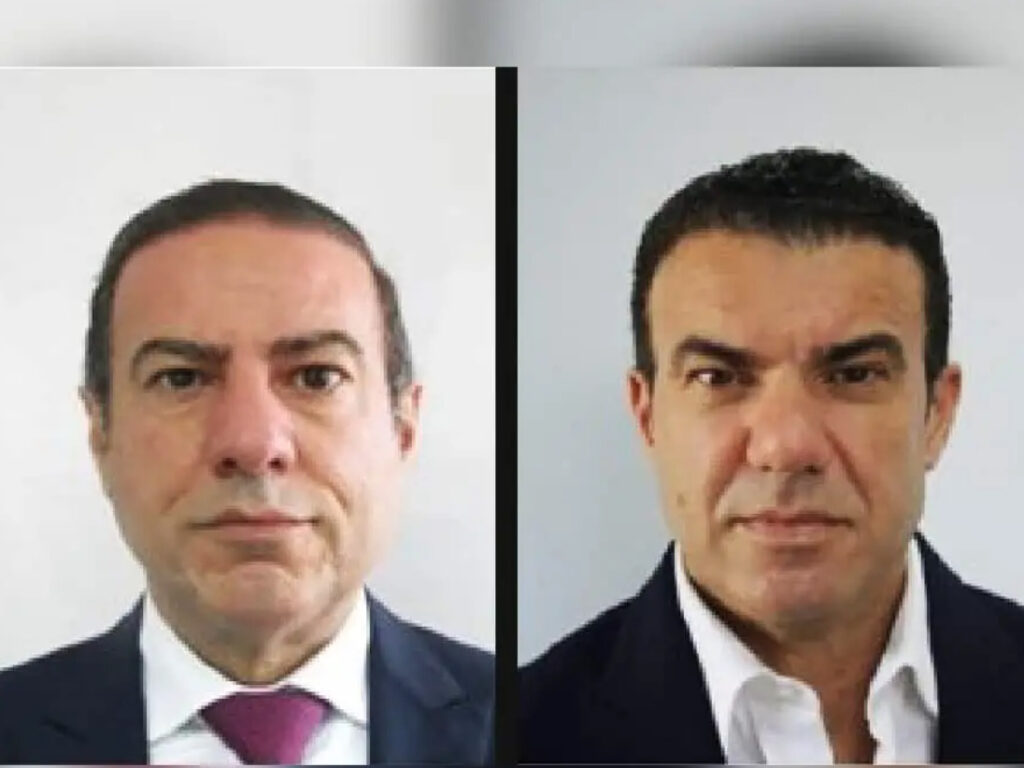 Majed and Khaled Khalil Majzoub, close associates of Delcy Rodríguez, have been privileged contractors of Chavismo.
Majed and Khaled Khalil Majzoub, close associates of Delcy Rodríguez, have been privileged contractors of Chavismo.
As for Lieutenant Colonel Antonio Pérez Suárez, accused of being the head of the scheme, he is linked with his friend, physician Eduardo Meneses and brothers Rafael and Roger Perdomo Rodríguez, contractors involved in significant projects such as the Eastern Highway, funded by oil sales.
The brothers Bernardo and Tadeo Arosio Hobaica of ATB Constructor, tourism entrepreneurs with hotels and inns in Los Roques, La Tortuga, and Galipán, would be Tareck El Aissami’s quota, benefiting from the sale of gas to Colombia.
Maduro is Responsible
Corruption at PDVSA is not new. In the books “Estado Delincuente” (2013) and “El Gran Saqueo” (2015) by Carlos Tablante and Marcos Tarre, the plots, which according to Tarek William Saab would already be more than 30, are described as a “systemic corruption.” Admitting guilt is a release of evidence.
This was the question the authors posed to Asdrúbal Chávez, who controlled trade and supplies at the oil company at the time:
“Who are the traders or operators of these transactions? Who are the clients? How much and how do they pay? At what prices? What are the details of the transactions with Cuba and China? In the case of Cuba, oil was sold, and payment was made with consultancy and social work. However, later on, through triangulation, Cuba would sell the crude to third parties. Are there commissions involved? Who receives them?”
There was no blockade, but these questions were already pertinent a decade ago. Now, with even more reason, when kleptocracy has undoubtedly taken over PDVSA. Evidence of this is what has happened to its most recent presidents: Rafael Ramírez, with a warrant out for his arrest. Nelson Martínez, died in prison. Eulogio del Pino has been imprisoned for six years. Manuel Quevedo, the same who in 2017 ordered an audit that resulted in 65 managers being detained for the illegal sale of hydrocarbons, is now sanctioned for corruption by the U.S. and Canada. Tareck El Aissami is in the eye of the storm amid a new corruption scandal, and Asdrúbal Chávez remains low-profile despite the power and responsibility he has held in PDVSA for years.
In a country where an autocrat has destroyed democratic institutions, all the power is controlled by him; therefore, those with more power bear greater responsibility for the massive looting that Venezuela, and especially PDVSA, has suffered.
In a country with the rule of law and democracy, the president, as head of the public treasury, should receive daily reports on how many barrels of oil are being produced, to whom they are sold, and at what prices. Likewise, the vice president and minister of finance should know about the financial availability for executing the budget. Meanwhile, the minister of oil should also have detailed information about PDVSA’s operations, which fall under his ministry. The responsibility of the president of PDVSA, who until December was Asdrúbal Chávez and is now Pedro Tellechea, is to be informed about all activities conducted under the strict security standards that must be followed to ensure an efficient operation of the oil company according to international standards. It is worth recalling that in the old PDVSA, the National Comptroller’s office had an office in the oil company’s headquarters.
Finally, if serious crimes against PDVSA’s assets have been committed, as is evident, the principal responsible party who must explain to the nation is the autocrat Nicolás Maduro.
Note: In the next installment, we will delve deeper into the routes of the ships, as well as the financial aspects (cryptocurrencies, insurance, and banks) of the present scheme.
